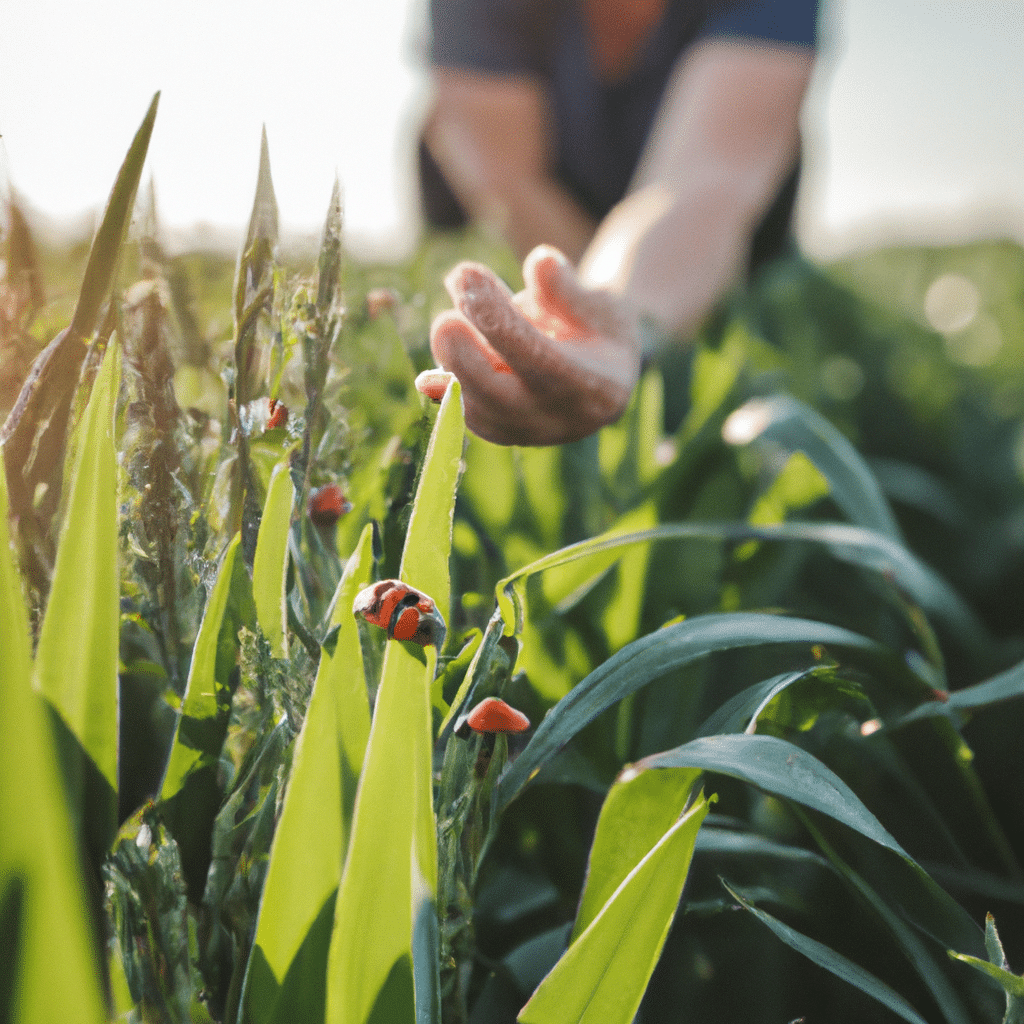At Thornapple CSA, we understand the importance of sustainable agriculture and the need to protect crops without relying on harmful pesticides. In this article, we will explore some lesser-known sustainable practices that can naturally safeguard your crops, promoting a healthier environment and ensuring the long-term viability of your farming operations. By adopting these practices, you can effectively manage pests and diseases while minimizing the use of chemical pesticides. Read on to discover innovative solutions that will help you protect your crops naturally.

The Importance of Sustainable Crop Protection
Traditional farming methods often involve the use of chemical pesticides to control pests and diseases. While these pesticides may be effective in the short term, they can have detrimental effects on the environment, human health, and beneficial organisms. Sustainable crop protection offers an alternative approach that focuses on long-term solutions without compromising the health and well-being of our ecosystem.
Integrated Pest Management (IPM): A Holistic Approach
Integrated Pest Management (IPM) is a comprehensive approach to pest control that combines various techniques to manage pests effectively. Unlike conventional methods that rely heavily on chemical pesticides, IPM takes into account the ecological balance and aims to minimize the impact on beneficial insects and other organisms.
IPM involves a four-step process: identification, monitoring, prevention, and control. By identifying the pests and understanding their life cycles, you can develop strategies to disrupt their reproduction and survival. Regular monitoring helps you detect pest populations early, allowing for timely intervention. Prevention involves implementing cultural practices that deter pests, such as crop rotation and companion planting. Finally, when control measures are necessary, IPM encourages the use of biological control agents, such as predatory insects, and physical barriers, such as nets or traps.
Biopesticides: Harnessing the Power of Nature
Biopesticides are derived from natural materials, such as plants, bacteria, and fungi, and offer an environmentally friendly alternative to chemical pesticides. These products target specific pests while minimizing the impact on non-target organisms. Biopesticides can be classified into three main categories: microbial pesticides, plant-incorporated protectants, and biochemical pesticides.
Microbial pesticides contain living microorganisms that control pests by infecting or parasitizing them. Bacillus thuringiensis (Bt) is a well-known microbial pesticide that targets certain insect larvae. Plant-incorporated protectants, on the other hand, are genetically modified crops that produce their own pesticides. For example, Bt cotton produces toxins that are lethal to specific pests. Lastly, biochemical pesticides are naturally occurring substances that interfere with the pests’ physiology, behavior, or reproduction.
Crop Rotation: Breaking the Cycle of Pests and Diseases
Crop rotation is a sustainable practice that involves changing the type of crop grown in a specific field from one season to another. By rotating crops, you can break the cycle of pests and diseases that target specific plants. Different crops have varying nutrient requirements and attract different pests. Crop rotation disrupts the life cycle of pests, reducing their population and the need for chemical pesticides.
When planning crop rotations, consider the specific pests and diseases prevalent in your area. Some plants have natural pest-repellent properties, while others attract beneficial insects that prey on pests. By strategically rotating crops, you can create a more balanced ecosystem that naturally controls pests and diseases.
Companion Planting: Nature’s Pest Control
Companion planting is a practice where different plant species are grown in close proximity to create a mutually beneficial environment. Some plants naturally repel pests or attract beneficial insects that prey on pests. By intercropping these plants, you can enhance pest control without relying on chemical pesticides.
For example, marigolds emit a strong scent that repels aphids and nematodes. Planting marigolds alongside susceptible crops can help protect them from these pests. Similarly, growing herbs like basil or dill near tomatoes can attract predatory insects that feed on tomato hornworms. The key to successful companion planting is understanding the interactions between different plant species and their effects on pests and diseases.
Natural Predators and Beneficial Insects: Nature’s Pest Control Army
Nature provides us with a vast array of predators and beneficial insects that can help control pests naturally. Ladybugs, lacewings, and parasitic wasps are just a few examples of beneficial insects that feed on pests like aphids, mites, and caterpillars. By attracting and conserving these natural predators, you can reduce the need for chemical pesticides.
To attract beneficial insects, create diverse habitats within your farm. Planting native flowers, providing shelter, and avoiding the use of broad-spectrum pesticides will encourage these insects to thrive. Additionally, you can purchase and release beneficial insects to establish a population in your fields. This approach not only helps control pests but also enhances biodiversity on your farm.
Conclusion
Embracing sustainable practices in crop protection is essential for the long-term viability of agricultural systems. Integrated Pest Management (IPM), biopesticides, crop rotation, companion planting, and the conservation of natural predators are effective strategies that can help protect your crops naturally. By reducing reliance on chemical pesticides, you contribute to a healthier environment, safeguard human health, and promote the overall sustainability of your farming operations.
At Thornapple CSA, we are committed to supporting farmers in their transition to sustainable agriculture. Our range of products and services can help you implement these practices effectively and optimize your crop protection strategies. Contact us today to learn more about how we can assist you in protecting your crops naturally and achieving long-term success in your farming endeavors.



